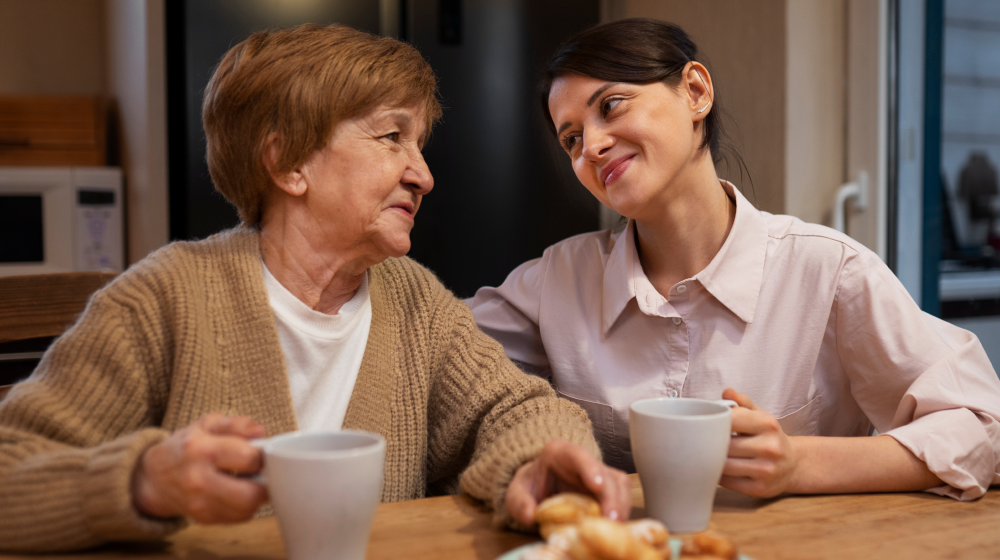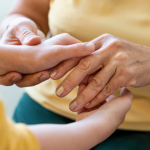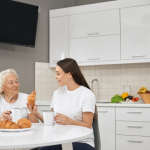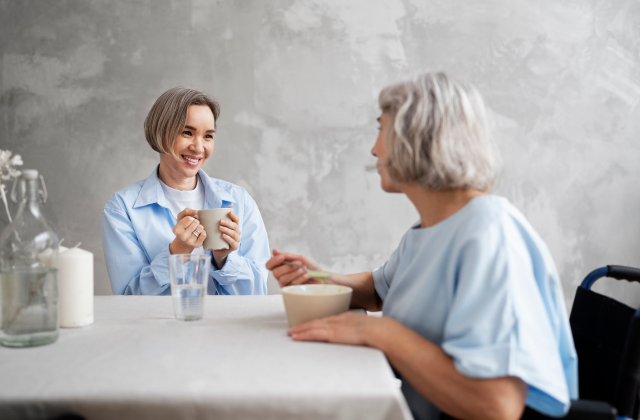What Personal Care Assistance (PCA) Really Involves in New York
When a family faces the need for daily support—whether for themselves or a loved one—it’s vital to understand not only who will help, but how that help will actually be organized. Personal Care Assistance NY (PCA) is a structured, at-home care program in which every action of the aide serves one purpose: to preserve a person’s familiar routine, safety, and dignity—without uprooting them from their home.
“The core value of PCA isn’t in isolated services, but in a stable, adaptable care system that conforms to the person—not the other way around.”
PCA in Plain Terms—and Why It’s More Than “Help Around the House”
PCA provides assistance with Activities of Daily Living (ADLs) and related household tasks (IADLs) so that each day remains safe and predictable:
- Personal hygiene and grooming: help with showering, washing, shaving, hair and skin care.
- Dressing and mobility: assistance with dressing, moving around the home, and supported walking.
- Nutrition: preparing simple meals tailored to dietary needs, serving food, and supporting mealtime.
- Day-to-day safety monitoring: accompaniment at home, fall prevention, observation of general well-being.
- Medication reminders (without clinical calculations or procedures).
- Household tasks: light housekeeping, laundry, changing linens, essential shopping.
- Social support: conversation, reading, accompaniment on walks or visits.
Important: PCA is not nursing. A personal care aide does not perform injections, wound care, or other clinical procedures. Yet PCA provides the essential “fabric of everyday life,” without which medical recommendations often remain theoretical.

“PCA is the daily rhythm of support that quietly connects many small tasks into one normal day.”
Who Benefits from Personal Care Assistance NY
- Older adults who find hygiene, cooking, or cleaning increasingly difficult.
- People recovering from illness or surgery who temporarily need extra help.
- Individuals with chronic conditions, cognitive changes, or higher fall risk.
- Family caregivers who need backup support or short-term respite.
How Care Is Built: From First Conversation to a Stable Routine
- Needs assessment. An agency specialist carefully learns routines, priorities, risks, daily schedule, dietary and cultural preferences.
- Individualized care plan. A time-mapped list of tasks: morning routines, meals, walks, rest, evening wind-down.
- Caregiver matching. Experience, language, personality fit, and schedule flexibility are considered.
- Launch and adjustment. In the first weeks, the plan “breathes”: some steps simplify, others become more precise.
- Quality oversight. Regular feedback, supervision, and the ability to arrange a prompt replacement if needed.
What a “Typical Day” with PCA Looks Like
- Morning: wake-up, hygiene, dressing, light stretching, breakfast and hydration.
- Daytime: lunch prep, accompaniment at home, reading or hobbies, help with household tasks.
- Evening: dinner, preparation for sleep, and setting up a safe nighttime environment (lights, mats, meds placed visibly).
Safety First
- Fall prevention (clear pathways, non-slip surfaces, grab bars).
- Hygiene and cleanliness (especially kitchen and bathroom).
- Observation of overall condition with timely alerts to family/coordinator if changes appear.
- Tactful assistance that respects personal boundaries and longstanding habits.
How PCA Differs from a “General Housekeeper”
- Goal: functional independence. Not “do it instead,” but “do it alongside,” preserving abilities.
- Plan and accountability. Care is structured; actions are tracked and adjusted.
- Training and standards. Aides are prepared and work under agency supervision.
How to Choose a PCA Agency in New York
- Transparent individual care plan and regular reporting.
- Trained and vetted staff, insurance, and seamless replacements without gaps in care.
- Coordinator availability (ideally 24/7).
- Sensitivity to cultural and linguistic preferences.
- Flexible schedules: from a few hours daily to extended shifts.
Personal Care Assistance NY at Angel Care Inc.
At Angel Care Inc. NY, we build care around the person: we start by defining clear goals (safety, independence, quality of life), translate them into everyday actions, and maintain consistently high service standards:
- Personalized plan + regular adjustments.
- Matching aides to temperament, pace, and habits.
- Quality control and rapid backup coverage during emergencies.
- Ethical communication with family and attending clinicians.
“We strive to make support tangible and our presence unobtrusive.”
Frequently Asked Questions (FAQ)
Is this a medical service?
No. PCA is non-medical assistance with daily tasks. When needed, we coordinate with a nurse or family physician.
Can the schedule change?
Yes. Timing and priorities flex with real-life circumstances.
What if the aide takes vacation or is ill?
We plan coverage in advance so care is not interrupted.
Who decides what tasks are performed?
Initially—you and your coordinator. The plan is then updated based on feedback from the client and family.
Where to Begin
- Brief call for an initial consultation and answers to your questions.
- In-home assessment and plan development.
- Caregiver matching and a gentle launch with thoughtful adjustments.

Angel Care Inc. located in Brooklyn, New York, provides high-quality skilled home care services for people who require assistance with daily living activities. In addition to Brooklyn, Angel Care Inc. also services clients in surrounding neighborhoods, including Queens, Manhattan, Staten Island, The Bronx, and Long Island. While more and more families are searching for home care for a loved one, it is crucial to understand the cost involved in getting that care. In 2025, the average cost of home care depends on many factors such as the state you live in, the level of care required, and the needs of the individual in care. In this article, we will outline the costs of home care in the United States to help your family make an informed decision. Cost of Home Care in the United States (2025) The average price of home care in the United States will be influenced significantly by the state you live in. Some states have higher median prices than others based on local market demand and local cost of living and the availability of properly trained caregivers. States will also vary if they rate using nurses and/or personal care assistants. The following maps show the 10 states with the highest and lowest home care prices in 2025. * (Blue - state with highest prices; Green - state with lowest price) The following comparison details the most expensive and least expensive home care states on average in 2025: State Cost per Hour Monthly Cost Estimate (24/7 Care) Most Expensive States for Home Care Minnesota $43 $28,440 South Dakota $43 $28,440 Vermont $42 $28,080 Oregon $41 $27,480 Alaska $40 $26,880 Hawaii $40 $26,880 Washington $40 $26,880 Least Expensive States for Home Care Cost per Hour Monthly Cost Estimate (24/7 Care) Mississippi $24 $16,320 District of Columbia $25 $16,800 Louisiana $26 $17,280 Alabama $26 $17,280 Texas $29 $19,440 West Virginia $29 $19,440 Florida $30 $19,680 What is the Cost of Home Care in NY? What does 24/7 Home Care Include? 24/7 home care for seniors is exactly what it says. It means ongoing ongoing care to support an elderly loved one day and night from the comfort of their own home. Home care itself can be provided in two main ways: Live-in Care: A caregiver lives in the home providing care day and night, when needed. While the caregiver is with the client 24/7, the caregiver will require regular respite for breaks and sleep. Hourly or Shift Based Care: Caregivers will work together in shifts providing care, so there is always a caregiver available to support the client including at night. This is important for seniors that need active caregiving at night (instead of simply a caregiver present at night). Home care for seniors commonly includes, assistance with activities of daily living (ADLs), including bathing, dressing, medication reminders, meal preparation, companionship, and maintaining a safe environment in the home that is neat and organized. The specific care plan is tailored according to the needs and preferences of the individual. What is the Monthly Cost of 24/7 Home Care in NY 2025? The monthly cost of 24/7 home care for seniors can vary dramatically depending upon if the home care will occur as live-in or hourly care, the region, and the level of care needed. The typical hourly rate for senior home care in New York is about $35 per hour. Live-in Care Costs Live-in care is generally considered a more affordable solution for ongoing live-in support. Here is a range of what to expect. Basic Care (companionship and some very light help with daily activities): Average weekly cost estimated in the range of $1,500 to $2,100. Moderate Care (some help with mobility, bathing, and personal care): Average weekly cost range of $2,300 to $2,800. Advanced Care (for seniors who may be dealing with conditions such as dementia, or greater health complexity): Costs can exceed average weekly costs of $3,000 for more intensive supports. This means that the monthly cost for live-in care in New York could be in the range of $6,000 to $12,000 depending on the specific care needs. It is important to always ask for a detailed breakdown of services and related costs because sometimes there may be additional costs related to special care, or holiday surcharges. Knowing the costs are important indicators that help families decide on the best care option for their loved one. Factors Impacting Home Care Rates The cost of home care will vary by state and other factors: Location in the state: States like New York city will have higher costs for care than rural areas and certainly their surroundings. Level of care: Specialized care based on conditions like Alzheimer’s or Parkinson’s can be charge more. Qualified Caregiver: Trained caregivers or certified caregivers like registered nurses or home health aides will charge higher rates. Living Arrangements: Living arrangements also impact the overall charge. Some caregivers are live-in while others are scheduling shift work. Why Choose Angel Care Inc? When it comes to home care, Angel Care Inc is reliable and trustworthy company serving Brooklyn and the surrounding areas. Our caregivers are compassionate, services personalized and what matters is that your loved one is receiving the care they deserve. In evaluating our ability to provide the highest quality of care to your loved one consider the following: Compassionate Caregivers: We employ qualified and experienced professionals trained to provide various home care services. Affordable Options: Expense is a major concern for many families, and we have taken that into consideration. We provide flexible care plans that meet the needs of the client and family. Person-Centered Care: All of our clients are individuals, even if we have many care plans to assist every person. Home Care in 2025 with Angel Care At Angel Care Inc in Brooklyn, we are going to offer you the highest quality personalized care based on individual needs of your loved one. We will help you find affordable proper care available for you, in whatever local community in Brooklyn or surrounding areas you happen to be located. Please do not hesitate to call Angel Care, Inc. today, if you have any questions, or to get a quote.

Once in a family conversation you go from thinking, "Can we take care of this ourselves?" to "How do we manage to keep life safe, dignified, and familiar at home? It is time to think about what, if, anything, can be done about a Home Health Aide (HHA). In New York's almost incomprehensible 2025 care environment - the complexity of dense, multi-lingual, regulated - the HHA acts as the undisputed practical link between a clinical plan to formalize care and everyday living, applying doctor's directions and family objectives into a routine process - all managed as support, that feels personal, not procedural. "An HHA's value is not one of completing tasks, but of creating continuity - because that is the reason why every ordinary day is possible, predictable and secure." HHA in Plain English - And More than "Help at Home" Home Health Aides provide hands-on, non-invasive support in New York, assigned under a nurse-directed plan of care. Although they are not nurses, they do operate within a professional framework: observe, assist, document, and report changes to the supervising clinician, which gives everyone confidence that HWAs will include oversight for a plan of care designed by the primary care nurse. Typical responsibilities of an HHA (as assigned and trained) below. Personal care (ADLs): bathing, grooming, dressing, toileting, support with continence, safe transfers, assist with mobility. Eating and drinking: simple meal preparation following a dietary plan, set-up and support with eating, hydration reminders. Medication support: reminders and assistance with self-administration (eg., opening containers) - not clinically providing medication. Safety and monitoring: fall prevention routine, skin checks as directed, vital signs check and recording (if trained/assigned), document changes. Activity and exercise: range of motion and ambulation exercises as taught by the clinical team. Household tasks (IADLs): light housekeeping around the client's care space, laundry and linen changes, shopping and errands for essentials. Companionship & orientation: conversation, cueing, calendar reminders, and accompany to appointments as planned. “In New York, HHAs extend the reach of clinical teams into the home—not replacing clinicians, always reinforcing the plan.” Important: What the HHA does is defined by nurses care plan, state regulations, and agency policy. HHAs do not perform invasive procedures or come to conclusions effecting clinical judgments independently. Who Actually Needs an HHA (vs. Something Else) Select an HHA when the person: Needs hands on personal care and basic health-related under RN oversight. Is post hospital or post-rehab, where daily follow-through is needed for safety and reconditioning. Lives with chronic conditions (cardio-metabolic, COPD), cognitive changes (dementia), or increased fall risk where benefit is found in structured routines as well as cueing and monitoring. Is homebound for a period, where the consistent assistance will prevent decline. Select a Personal Care Aide (PCA) when the need is for mostly non-health personal care and basic household help. Select a Nurse (RN/LPN) when clinical interventions (wound care, injections, clinical medication administration, assessments) are needed. HHA vs. PCA vs. Nurse: Who Does What (At a Glance) Role Core Focus Examples of Tasks What They Don’t Do HHA Personal care + basic health support under RN supervision Bathing, dressing, safe transfers, hydration prompts, meal prep per diet, reminders for meds, vitals/ROM if trained & assigned, observation & reporting Injections, sterile dressings, independent clinical decisions, changing medication orders PCA Non-medical personal & household support Hygiene assistance, light housekeeping, errands, companionship Any health-related tasks requiring nurse oversight Nurse (RN/LPN) Clinical care & supervision Assessments, wound/ostomy care, injections, med administration, care-plan updates, HHA supervision/teaching Extended non-clinical household tasks Note: Scope will vary by care plan, payer rules, and agency; always confirm what is authorized by your case. A Day With An HHA: Dignity In The Details Morning reset: unhurried wake, hygiene, skin care, dressed for the day, safe transfer training supported, breakfast consistent with prescribed diet. Midday structure: medications on time with reminders, gentle activity or ROM exercise, hydration reminders, light tidy-up of care area, or walk if safe. Evening wind down: dinner prepared, toileting routine laid out, comfortable attire for the night, environment check (lighting, paths cleared, devices charged), notes for the RN documented. “Consistency is healing – when smaller tasks are executed the same predictable way, strength and comfort come back.” 2025 Realities in New York: Access, Payers, and Expectations Care settings: care is either provided by Licensed Home Care Services (LHCS) Agencies or as part of Certified Home Health Agencies (CHHAs) for Medicare qualifying episodes where skilled care is present. Payers: private pay, managed long-term care for Medicaid, specific long-term care insurance, and Medicare home health if the vetted criterion are met under a skilled plan. Training & oversight: HHAs receive state-approved training and execute tasks based on a plan written by a nurse; agencies provide supervision, in-service training, and reassessment. Trends (2025): more dementia capable care, tighter infection control routine, RN check-in visits via telehealth, better data capture (falls, vitals, nutrition adherence) to keep plan relevant. Safety & Quality: What Families Should Observe Fall prevention by default: clear paths to, and around surfaces, use non-slip surfaces, transfer techniques practiced and visual check of footwear. Medication safety: reminders aligned with the exact physician list; any variances escalated to the nurse. Skin integrity: at risk areas checked as directed; repositioning and shower/skin care plan carried out. Escalation culture: new cough, fever, confusion, swelling, pain, or appetite changes documented and reported - early. How Angel Care NY Delivers HHA Support Start by listening: a brief call to capture goals, history, preferences, language needs and risk. In-home assessment and plan: RN translates goals into a stepwise and scheduled tasks. Match-matching and Onboarding: we match skills, temperament, languages, and availability; we facilitate introductions before we "start." Stabilization: the first two weeks are fine-tuning (what works well, what does not work well, what we are going to adjust). Ongoing oversight: nurse check-ins, family updates, rapid cover when an HHA is out, and measurable quality indicators (falls, hospitalizations, satisfaction) Service Modalities & When They Fit Modality Billing Unit Best For Notes Hourly (shifts) Hourly Daytime needs, evenings, or nights; flexible coverage Build only the hours you need; ideal when nights are active Live-in Daily rate Stable, predictable routines with intermittent night needs Requires suitable sleep & break arrangements for the aide Split shifts Hourly (AM/PM) Morning/evening peaks with mid-day independence Efficient for ADL clusters (getting up/settling in) Costs vary by borough, shift pattern, and acuity; request a written estimate aligned to your exact plan of care. Checklist for Deciding: Choosing an HHA Agency in NY Licensing & compliance: LHCSA/CHHA status; clear plan-of-care processes. HHA credentials: state-approved training; registries listing; with ongoing inservices. RN supervision: frequency of visits/check-ins; the process for change. Coverage plan: contingency plans for illness, holidays, weather; 24/7 call line. Fit: language, cultural alignment, dementia experience as desired. Transparency: scope in writing, schedules, rate sheet, and escalation pathways. Frequently Asked Questions (HHA, New York 2025) Is an HHA medical staff? HHAs are non-medical paraprofessionals who work under a nurse's plan. They support clinical instructions but do not do invasive procedures or have clinical decision-making ability. Can an HHA administer medications? They can remind and assist with self-administration (i.e., set-up, open containers), per plan and policy. Clinical administration is to professionally licensed clinicians unless part of a specific delegation program. How is an HHA different than a "companion"? Companions provide social support and light satisfaction, while an HHA provides personal care and health-related practice while under RN supervision. How many hours should we start with? Begin with the highest risk times (morning/evening and bathing and/or transfers) and expand or contract the hours based on perceived need. Can we change aides? Yes. Angel Care, Inc. facilitates transitions to ensure continuity and comfort. Getting Started with Angel Care, Inc. (New York) Call for a no-pressure consultation. We identify your desired goals, payor options, and assess next steps. Schedule an in-home RN assessment. We put goals into a safe, actionable plan. Meet your aide and begin. We monitor closely and provide updates. “Care that is technically sound and emotionally intelligent—that's our promise to every family. We serve.”



